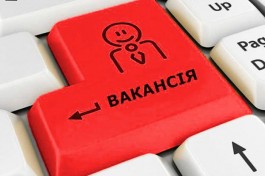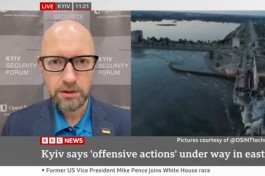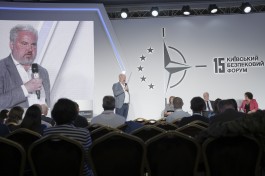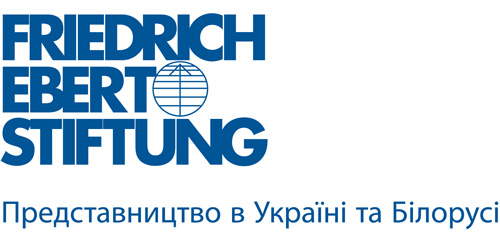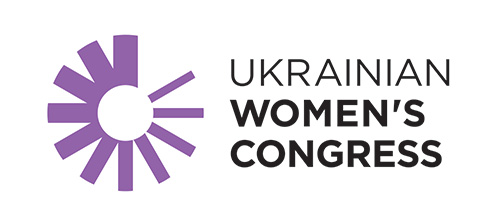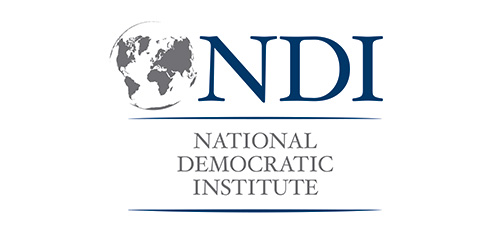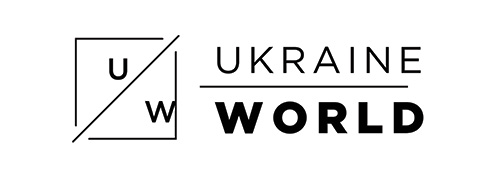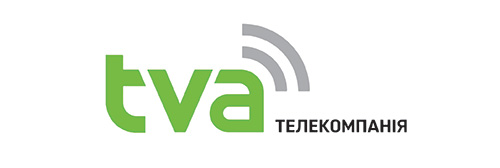«Багато політиків сьогодні говорять про «відновлення» потужностей економік, щоб створити позитивні настрої серед населення і зберегти свої посади», - підкреслив Ніколас Кочан
Сьогодні на сайті Київського безпекового форуму відбулась чат-конференція з відомим британським фінансовим журналістом та економічним оглядачем журналу «The Banker» Ніколасом Кочаном.
Сьогодні на сайті Київського безпекового форуму відбулась чат-конференція з відомим британським фінансовим журналістом та економічним оглядачем журналу «The Banker» Ніколасом Кочаном. Під час конференції, окрім світової економічної кризи, українських інтернет-користувачів цікавили такі актуальні для України та світової спільноти питання:
- які методи необхідні Україні для подолання економічної кризи;
- формування нового світового порядку;
- з якими країнами варто «дружити» в подальшому Україні;
- чи варто розпочинати свою власну справу під час кризи;
- яким бачить посткризовий світ британський журналіст;
та багато інших, що виникли внаслідок фінансової кризи 2008-2009 років.
Фонд «Open Ukraine» висловлює щиру подяку Всім, хто взяв участь у нашій чат-конференції та сподівається, що Вам будуть цікавими й подальші заходи, які організовуватиме Фонд «Open Ukraine».
Довідково:
Ніколас Кóчан – провідний британський журналіст та автор статей на економічну і політичну тематику. Співпрацює з редакціями таких відомих газет і журналів: «The Financial Times», «The Daily Telegraph», «The Banker», «Euromoney Magazine» та багатьох інших міжнародних видань. Постійно пише матеріали на тему політичних відносин, зокрема у Східній та Центральній Європі, про економіку, фінанси, банківську систему і ринки капіталу. Автор біографії Гордона Брауна та кількох книг про відмивання грошей і фінансові злочини. Також написав книгу про витоки сьогоднішньої рецесії. Здобув освіту в Кембриджському університеті.
Відповіді:
Anton Bilousov
How in your opinion Ukraine can meet adequately crisis and whether long to us still it to endure?
Dear Mr Bilousov
The crisis is a very ill defined event and we are still trying to understand its causes. So solutions are also hard to come by. Responses to the crisis are taking two forms. They are short term and long term. Short term, governments need to pump prime the economy by printing money or by borrowing money.
The UK and the US have printed money and expanded the money supply to put money into the banks and into the pockets of businesses and citizens that may be on the verge of going bankrupt. Ukraine has used the resources of the IMF to shore up its national balance sheet.
Longer term, all governments have to look at the structure of their financial system. They have to ensure that money is lent more carefully to borrowers, both businesses and individuals. People cannot be allowed to borrow so much in foreign currencies, for example, which exposes them to the exchange risk. These sorts of changes require structural and political innovation.
How long will it endure. There is no easy answer to that question. We are already seeing signs of growth in gross domestic product (GDP) in many economies. But there is a sense that this may be built on shakey foundations. I fear that we have one more year of uncertainty before the strong Green shoots of recovery will surface.
I hope that helps
Bohdana Kostiuk
Dear Sir, how the world economy to be changed after global crisis? Do you think that the humanity is to get new leaders - economic, political, moral? And in general, what world is to be created after the crisis?
thank you for your attention,
Bohdana Kostyuk, broadcaster - radio LIberty.
Dear Bohdana
The crisis has certainly started us thinking about the basis for our politics and for our leaders. It has shaken up many politicians, for sure. Farsighted people have askd questions about the nature of our economy. Has its collapse been caused by its capitalistic basis. Would be better of with a more people-centred type economy, rather than expanding large and global corporations.
It is important that we ask these questions. But I fear, politicians are most afraid that they will lose their jobs and fall out of favour if their electorates blame them for the recession. A lot of politicians are talking up the strength of the economy to create a ‘feel-good’ feeling among the people.
As far as the future world, after the crisis…. I am afraid I take a very cautious view on that. There is a lot of instability right now, and that is not a good basis for change. There is also a lot of unemployment, and there are a lot of very angry people around right now. So I would not like to predict the post-Crisis world. Crisises in the past have produced sharp and dangerous political change, in particular the 1930s. I am worried as well as uncertain.
Alex
What your forecasts concerning a small-scale business in Ukraine after crisis overcoming. For today the small-scale business has most suffered from crisis. What to businessmen can advise to do further - to close business now or to hold on like grim death because the best times still can come?
Alex
Small businesses are under enormous pressure primarily, I believe because of two reasons. First, those that are borrowers from banks will find that borrowing is more expensive, harder to obtain and likely to have more strings attached. Banks as we know are under enormous pressure and they are squeezing anyone they think might not repay their loans.
Small businesses are also under pressure from ordinary consumers cutting back their expenditure. Small businesses have less resources to ride out sharp dips in turnover and in revenue. They find it harder for example than large businesses to manage stock and inventories.
Thirdly, small businesses tend to be at the end of the line. Large companies will take longer to pay their bills from small firms because they know they have less power to demand their money.
Undoubtedly, the economy will revive, and it must be a matter of time and judgement, how you cut costs and expenses to ensure you survive until a turnaround.
Sergij Soltys
Dear Nicholas Kochan,
what do you think about Amero money? When we will see them and how this move will influence in the world economy?
Sergij
I am afraid I am not aware of Amero money and would need your help in understanding what it is. sorry!
Михайлина
За 2009 рік відбулось дві зустрічі країн G20. Наскільки результативна, на Ваш погляд, заміна Великої вісімки на Велику двадцятку та чи зможе G20 забезпечити ефективні механізми посткризового врегулювання світової економіки?
Mikhailina
There are two schools of thought about the G20 as opposed to the G8. Some think that the inclusion of the emerging mega economies in the larger organisation like China and India makes it more representative and more effective. The other thinks that the larger organisation risks becoming too bureaucratic and unwieldy because of its size. In other words, it may be harder for it to come to decisions because too many people have to agree. I am quite impressed at the way the larger organisation has worked so far. Proposals for restructuring of the global economy at the London conference followed up at the Pittsburgh conference have brought a degree of coordination to global economic planning. The inclusion of China and India has undoubtedly brought into global planning the new forces of the future, although they have vast and unpredictable changes ahead. These carry their own risks, quite different to ours, for global instability, I fear.
Алина Тищенко
Скажите а длинный ли путь нужно проделать для того, что журналиста печатали в таких всемирно известных изданиях, в которых сегодня можно увидеть и ваши публикации? учусь на факультете журналистики, мечтаю работать в лондони много для этого делаю.Хотелось бы понимать реально ли это вообще?
Спасибо!
Alina
You are asking a large question. And one that is dear to my heart. I wonder if this is something you might like to make contact with me directly, as this requires many answers and much thought and planning. Also your own circumstances and eagerness and determination and ability are all critical to such a career. It is by no means straightforward or easy to build.
Арбузов Олександр
Доброго дня! У мене запитання стосовно впливу світової фінансово-економічної кризи на формування нового світового порядку, і яку роль у цьому формуванні може зиграти Україна? Яких ключових гравців нам потрібно триматися, чи повинні ми врешті решт зробити свій вибір: Росія, ЄС чи США? Дякую за запитання! Арбузов Олександр аспірант з політичних наук!
Oleksandr
You pose some most important questions.
- How did the world economic and financial crisis redefine the world order? The key here I believe is the arrival on the world stage of China and India. The creation of the G20 to include those two powers marked an important shift.
- China in particular has been building up financial reserves, in particular US Treasuries that give it virtually a stranglehold (if it wanted to abuse its financial power) on the global economy. My sense is that China has a long way to expand. There are many hurdles and crises it will need to experience. But its resources in terms of people and political determination point to its future strength.
- The flip side of the arrival of China and India is the pressure the crisis has placed on the United States and the UK. The failure of American and British financial institutions tells me that these countries are weakened possibly fatally by the crisis. I find it hard to see them do anything except decline.
- What can be the role of Ukraine? What are the key players on the international arena that Ukraine should work closely with? Should Ukraine finally decide between Russia, EU and the US?
- On the global stage, I believe that Ukraine has a very difficult balancing act to conduct between its eastern and western strategic alliances. Ukraine has undoubtedly interests in both economic and political areas. There are also risks in placing two much dependence one relationship rather than another. So I am not sure that the idea of ‘finally deciding’ on one direction or the other is good diplomacy or good politics. However, the development of relations with the EU leading towards membership has many benefits. The adoption of NTO membership on the other hand has many risks. Relations with Russia, I fear, are likely to get harder and more abrasive rather than easier.
- Sorry not to be more definitive on this score.
Сергій Чумак
Які механізми соціального захисту вразливих груп населенн передбачаються зараз і далі в посткризовому суспільстві
Serhiy
You ask about the most vulnerable social groups and the crisis. I have to be rather pessimistic on this score. I see unemployment growing to record highs, as companies cut costs. I also see governments social spending under massive pressure as budgets are squeezed and taxation revenues fall. I am also very worried about the risk of inflation, which wipes out the savings of those with fixed incomes, mainly the poor. All in all, these are very difficult times for the poorest, and I expect there to be growing interest in barter and transactions outside the for banking and economic system as people lose faith in money.
Наталія
Українські політики орієнтуються на захід, використовують політичні технології, намагаються впливати на думку людей. Як можуть українськи громадяни впливати на діяльність політиків? Що може спрацювати в Україні з того, що вже використовується у світі? Адже основна проблема у тому, що українці не вірять в те, що їх думка впливає, що вибори є чесними. І питання на тему кризи: які заходи на шляху до подолання економічноїкризи Україна ще не виконала? Чи правильно розпоряджаються бюджетом наші політики?
Natalia
I just read an interesting article in the Financial Times saying that Americans were losing faith in their politicians and more importantly not just in the people (whom many think are corrupt) but in the political system of elections. That suspicion and lost of trust is not limited to America, it is global.
Economic stress exaggerates people’s sense of alienation from the political process. This is because politicians have less money to provide the resources that the people want. Hence the people think they are not listening.
I would not be surprised to see more evidence of unrest on the streets as the incapacity of politicians to meet the demands of the people grows. So far, protest has been limited but the longer the economic stress goes on, the more the pressures on democracy and democratic institutions.
You second questions asks about Ukraine’s particular situation. One particular problem in Ukraine is the solvency and the stability of the banking system and I would argue for this to be greatly reduced in size. I also believe there needs to be tighter regulation and careful watch on lending. I believe the IMF probably needs to have an important role in Ukraine’s economic management over the coming period. This is not a long term strategy, but the depth of the crisis and the implications of a fall in the currency are of such magnitude, that the backing of the IMF looks unavoidable.
You last question about the Ukrainian state budget is a little outside my field of expertise. I would repeat what I have already said, that the state budget is likely to shrink as the recession endures.
Віталій
На Вашу думку, світова криза похитнула американський долар як світову валюту? І чи займе, найближчим часом його місце євро?
Vitaliy
I believe the recession has had a very damaging impact on both the dollar and sterling. Both currencies have come under great stress in the last months, while the Euro has strengthened. The problems exposed by the crisis in the management of the Western banks, especially American and British banks, have undermined confidence in their economies and therefore their currencies.
Moreover, the policy of Quantitative Easing (printing money to buy back state bonds) has created the risk of inflation which puts a timebomb under the dollar. It may be sometime before the Euro replaces the dollar, and one has to bear in mind the expansion of the Yuan, but I would not bet on a resurgent dollar for some time.
Юля
Відомий філантроп і фінансист Сорос пророкував світову кризу ще у 2007 році. Чи не вбачаєте Ви, таким чином, штучне «коріння» світової фінансової кризи 2008/2009 року?
Yulia
A lot of people (other than Soros) predicted a bursting of the economic bubble. But none predicted the extent or scale of the problem. We have seen a financial as well as real economic meltdown. Frankly, I do not believe there have been any winners. Such is the instability, today’s winner may easily be tomorrows loser. I do take Soros very seriously, but we tend to hear more about his triumphs than his failures. I have absolutely no doubt there are a number of those failures as well. By the way, what do you make of Warren Buffett buying an American railway company!
Андрій
Сьогодні Франція та Німеччина вийшли з рецесії та мають невелике зростання виробництва. Як правило, за рецесію наступає депресія, а тут одразу позитивні результати! Можливо така інформація є неправдивою і має на меті посилити інвестиційні надходження до цих країн?
Andriy
We need to be very careful about one quarters set of figures. Yes, France and Germany have shown an uptick in GDP, but just as recession is defined as two consecutive quarters of GDP fall, so recovery needs to be at least two quarters of increase, and perhaps more. I would also say that many of the worst effects of recession may be lagging factors, in particular unemployment. That presents the greatest problem to governments in France and Germany who are staring at record levels of unemployment even as their GDP rises. The recent decision by GM in Germany holds some worrying implications for that government and country. Every country is pushing for investment, but all countries are likely to be bolstering their own infrastructure before spreading their wings in todays cautious environment.
Анжела
Доброго дня, пане Ніколас! Чи посилиться роль МВФ у світовій економіці найближчим часом? І чи не буде це першими офіційними ознаками нового світового уряду?
Angela
The MF has already taken a very important role in responding to the crisis, after a long period when it had virtually gone defunct. Demands for bailouts of national balance sheets (from countries in Central and Eastern Europe in particular) are at unprecedented levels and the IMF appears to provide an important conduit for channelling Western funds into those economies. Dependence on IMF funding creates important pressures on governments, who may wish to choose their own independent responses to external economic conditions.
Евгений
Вы писали о связи терроризма и отмывания денег. А повлиял ли, по-вашему, финансовый кризис на организованную преступность и терроризм в Европе?
Evgeniy
That is an extraordinarily interesting question. It is also naturally one that I have given some thought to, as you rightly say I have written about this subject. My basic view is that the recession carries risks for the clampdown and control of organised crime. This is because the authorities are so engaged in fighting recession that they are likely to pay less attention and put less money into curbing crime.
I also believe that structural change, in terms of the nationalisation or collapsing of banks, is likely to undermine systems for outlawing money laundering. Criminals thrive during times of instability, viz the growth of the Russian mafia during the collapse of the Soviet Union.
During times of instability and cost-cutting, layers of controls in companies and banks are also eliminated, adding to the risk of criminal infiltration into the economic system.
Sorry this is a gloomy picture but I fear that things may be happening (in terms of the growth of criminality) under the surface which will come to bite us further down the line.


